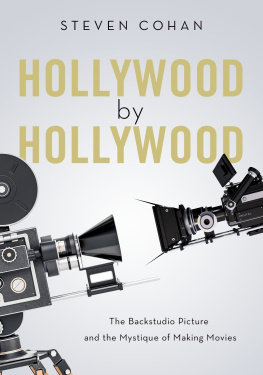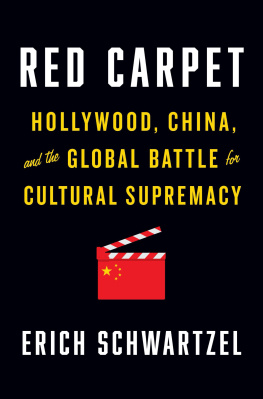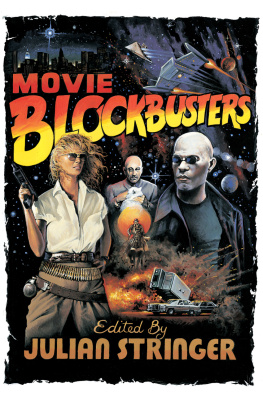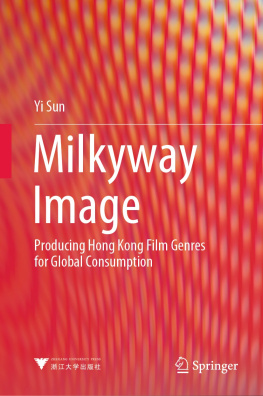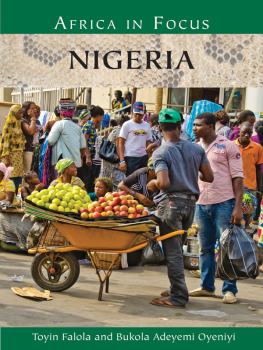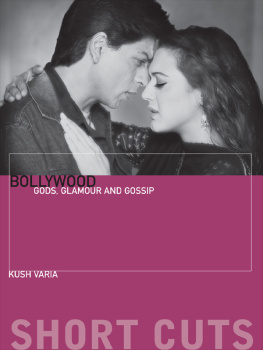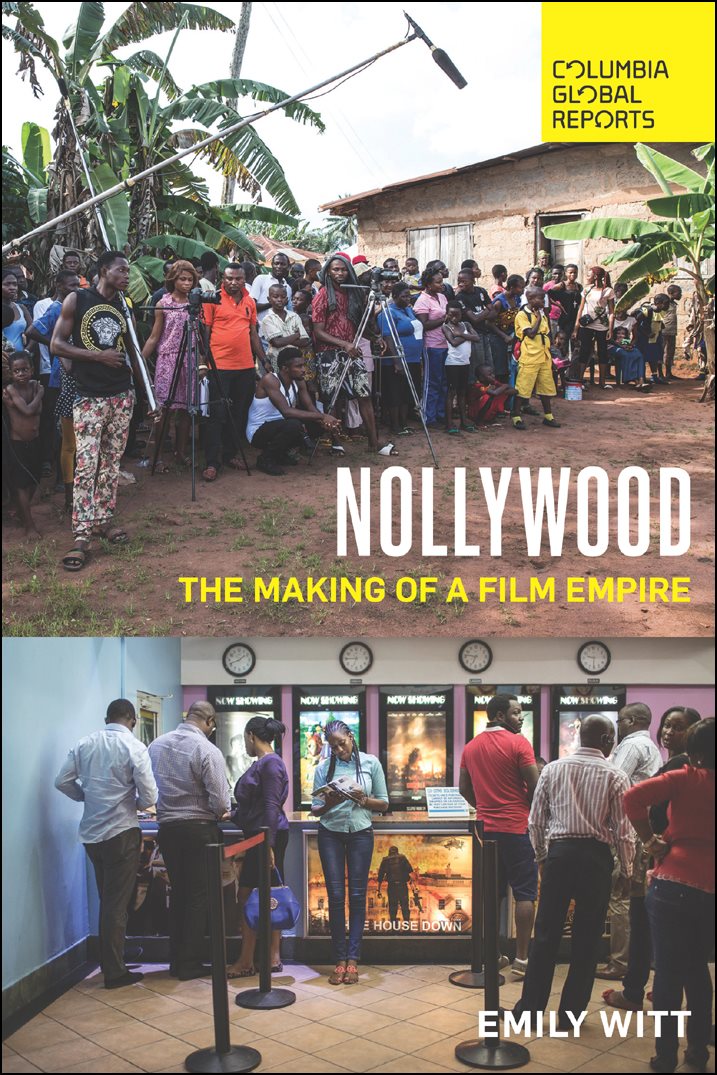


Nollywood
The Making of a Film Empire
Copyright 2017 by Emily Witt
All rights reserved
Published by Columbia Global Reports
91 Claremont Avenue, Suite 515
New York, NY 10027
globalreports.columbia.edu
facebook.com/columbiaglobalreports
Library of Congress Control Number: 2016962878
ISBN: 978-0997126495
Book design by Strick&Williams
Map design by Jeffrey L. Ward
Author photograph by Noah Kalina
CONTENTS
Table of Contents
Guide
I had been in Lagos for more than two weeks when, during an interview with an executive of a cable company, I mentioned that I still had not found my way onto a Nollywood movie set. She nodded, thought for a moment, then picked up her phone. When someone in Lagos suggests that you should talk to someone else, she will often call that person up then and there. I soon found myself sitting in a bar with Femi Odugbemi, the founder of a documentary festival in Lagos and a producer on a popular soap opera. Odugbemi made some more calls, and by the end of our meeting I had a list of movies in production. First, however, as an orientation, he gave me a short overview of Nollywood. I decided that what he told me I should simply transcribe here for the readers benefit:
Up until the last twenty to thirty years the history and culture of African communities were the narratives of the colonialists. Those narratives, quite frankly, beyond not being accurate, beyond not being authentic, were political.
Now: cinema is political. Every cinema is political. The only way cinema works for you is if you are in charge of it. Every colony used cinemawhether in the genre of documentary or the genre of dramathey used cinema to what? To alter behavior. They used cinema to explain that it was civilized to use knives and forks to eat, as though the natives were not eating before they came. There was a replacement therapy and film was the tool. If you knew a god before they came, cinema was able to give you a greater god, and a better god, and explain to you why your god was rubbish. If you dressed a certain way before they came, they were able to use cinema to assure you that what the queen approved as gentlemanly was a suit. Film allowed you to be able to show, to tell, to wow, to entertainwhile indoctrinating. Unless you were in control of that, your story was at risk. Your story was told by someone else.
When Nollywood started out in the 1980s, the executive producers were actually merchants who sold videotapes. Someone had the brilliant idea that the way to move these videotapes was to put something on them. Now, at that time, locally produced soap operas were very popular on NTA, the Nigerian Television Authority. And a videotape salesman named Kenneth Nnebue thought to himself, if I could get one of these guys who made the soap opera at NTA to make me something like a soap opera, then well move the sales of the tapes. It turned out to be brilliant. But also at that time, like a perfect storm, security was an issue, the military regime was in place, and people wanted to stay at home. The tape players were new, and it was a sign of elitism to be able to watch a film in your own house. The cinemas were going down. We grew up in a time where we could go to cinemas and our mothers didnt care where we were. But cinemas were dying, there was crime in the streets, the military were out thereyou know what I mean. So how did the tapes move? The merchants commissioned the soap opera producers: Make me what was essentially an episode, write and direct it for me, and put it on the tape. It moved the tapes. What they didnt sell, they wiped, and made another film.
The way to distribute it was simple: The tapes were simply placed in every electronics shop. It was at that time mostly urban, essentially sold in Lagos. And then, guess what? The house girls and house boys who came from the village and lived with their principals in Lagos found it to be something to watch when madam and oga [Yoruba for sir or boss] were not at home. In that boring period during the day when there was nothing happening, they slotted in the tape. The stories were representations of those things that were present-day realities: big houses, lots of cars, house girls, madam, oga. The stories were all about those experiences.
From the 1990s to the 2000s, the industry began to expand. The limits of the experience of the house girl in Lagos were exhausted, but she had a local life in the village. The stories moved to the village; the people who were the consumers began to become the storytellers. And in 1990 to 2000 the whole concept of spiritualismotherworldlinessemerged. We began to take on the point of view of the house girl, who believed that the unseen controlled the seen. In the village she had mythology, she had juju to deal with. You get it? So the stories all became the house girl that brought juju, the house girl that took madams husband.
The way that the movies were distributed also changed. The film left the urban and began to go into the rural areas. The girls, when they go home for their holidays, or to go and see mama that is sick, took along with them videos of Nollywood. By then the story was also now relevant to those down there. They understood the otherwordly thing, they understood all of that. And they embraced it.
By 2000 the VHS was at the end. The VHS machine disappeared. Everything became cheaper. There was this video-CD thing, where you could now have one film, two films, three films, in one. VCDs came and they were cheaper. Everybody had the player, including mama in the village, including the grandma, and then the ownership of Nollywood shifted from the makers to the consumers. And thats when a young man who was working with a new cable company decided that, You know what? This is something that needs to be put on cable. Rather than consuming this a little, why dont we make it a twenty-four-hour channel, just place all this junk on it. But you know why he did that? They were cleaning up the tapes from the last film to the next film. In effect, what he did, he became the first archivist.
The archiving turning point brought value to what was before then essentially disposable. By bringing it on TV, he gave it value. In giving it value those people who were wiping could license content. Thats when Nollywood became international. Up until that point it wasnt actually even addressed as cinemawhich is still a matter of debate. But if cinema is about representation, cultural representation, you have to understand it is in the present a work of process. Now, 2003, it hit television. In hitting the TV, roles began to be redefined. By this time the man that is doing Nollywood just to sell tapes has disappeared. Why? His reason for being has disappeared. An audience has taken ownership. A platform has emerged. The sustainability and longevity of content as something that is valuable enough to be paid for has emerged. And thus you now have a different mix.
From 2000 to 2010, a few things are beginning to come together. A star system is emerging; looking for storytelling in a formal sort of way is emerging; a class of writers and filmmakers and cameramen. There is a certain consciousness now that what we are doing actually has a meaning. It was at that same time that festivals began to be interested in what is this activity in this Nigeria, and curiosity. Remember, suddenly out of nowhere, a country is producing dramatic features in the thousands. So it turns out that academia is interested. Some festivals are interested. Everybodys asking now, Whats this activity?


